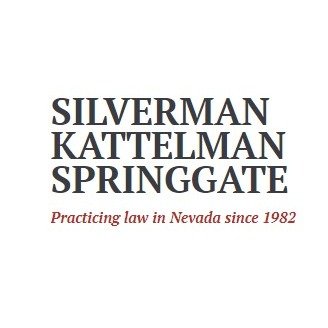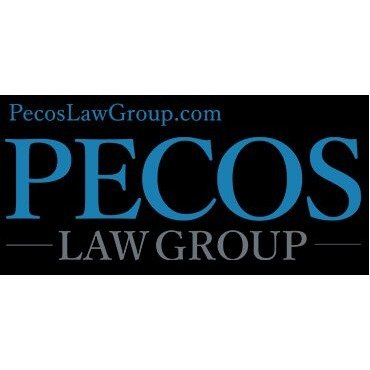Best Franchising Lawyers in Nevada
Share your needs with us, get contacted by law firms.
Free. Takes 2 min.
Or refine your search by selecting a city:
List of the best lawyers in Nevada, United States
About Franchising Law in Nevada, United States
Franchising is a popular business model in Nevada, allowing entrepreneurs to operate under a recognized brand while benefiting from established systems and support. In Nevada, the legal framework for franchising is shaped by federal laws as well as state-specific regulations. Franchising involves a contractual relationship between a franchisor and a franchisee, giving the franchisee the right to operate a business using the franchisor's trade name, systems, and trademarks. Compliance with disclosure, registration, and operational requirements is crucial for both parties to avoid legal issues and ensure a successful business relationship.
Why You May Need a Lawyer
Getting involved in franchising can be complex. Here are common situations where consulting a lawyer is essential:
- Reviewing Franchise Disclosure Documents (FDDs) to understand obligations and risks
- Negotiating terms of the franchise agreement to protect your interests
- Ensuring compliance with federal and Nevada state franchise laws
- Addressing disputes or breaches of contract between franchisors and franchisees
- Advising on intellectual property issues, including trademark use and protection
- Assisting with the purchase or sale of an existing franchise
- Managing termination or renewal of franchise agreements
- Handling employment and labor law matters related to franchise operations
- Guidance on advertising, marketing, and operational restrictions or requirements
Legal advice can help prevent costly mistakes and ensure the franchising process runs smoothly.
Local Laws Overview
Nevada is considered a "non-registration" state for franchises, meaning franchisors are not generally required to register their Franchise Disclosure Documents with the state before offering or selling franchises. However, all franchisors must still comply with the Federal Trade Commission (FTC) Franchise Rule, which mandates extensive disclosure to prospective franchisees at least 14 days before any agreement is signed or payment is made.
While Nevada does not have a specific state franchise law, general contract principles, business opportunity laws, and anti-fraud provisions apply to franchise relationships. Key aspects include:
- Mandatory pre-sale disclosures as dictated by the FTC Franchise Rule
- Enforcement of fair business practices and prohibitions against deceptive trade practices under Nevada law
- Applicability of general business regulations, including tax registration, employment law, and licensure
- Requirements related to trademark and intellectual property under both federal and state law
- Consumer protection regulations that may affect franchisee operations
Because Nevada law can change, and because federal laws always apply, it is important for franchisors and franchisees to stay updated and seek legal advice tailored to the specifics of their business relationship.
Frequently Asked Questions
What is a franchise?
A franchise is a legal and commercial relationship between the owner of a trademark, brand, or business system (the franchisor) and an individual or company (the franchisee) that is authorized to operate a business using those rights in exchange for a fee.
Do I need to register my franchise in Nevada?
Nevada does not require franchises to register with the state before offering or selling franchises, but you must comply with federal franchise disclosure requirements.
What is the Franchise Disclosure Document (FDD)?
The FDD is a legal document the franchisor must provide to potential franchisees. It contains detailed information about the franchise system, fees, contracts, financial statements, and the obligations of both parties.
How long do I have to review the FDD before signing?
The federal law requires franchisors to provide the FDD at least 14 days before any agreement is signed or payment is made.
Can the terms of a franchise agreement be negotiated?
Some terms may be negotiable, but many franchisors offer agreements on a take-it-or-leave-it basis. It is important to have a lawyer review the agreement and attempt negotiations where possible.
What protections are available to franchisees in Nevada?
While Nevada does not have a specific franchise law, franchisees are protected by federal law, general contract law, anti-fraud laws, and consumer protection statutes.
What happens if there is a dispute between the franchisor and franchisee?
Disputes are typically handled according to the franchise agreement, which may dictate arbitration or litigation. Seeking prompt legal advice is strongly recommended.
Are there ongoing fees in addition to the franchise fee?
Most franchises charge ongoing royalties, marketing fees, and other costs as detailed in the franchise agreement and FDD. Carefully review all ongoing financial obligations before signing.
Can I sell my franchise in Nevada?
Selling a franchise is usually allowed, but often requires franchisor approval and must comply with terms specified in the franchise agreement.
Where can I find legal help regarding franchises in Nevada?
You can seek assistance from private franchise attorneys, the Nevada State Bar, or specialized legal clinics. See the resources section below for more information.
Additional Resources
If you need further information or support regarding franchising in Nevada, consider the following organizations:
- Nevada Secretary of State - Business Services Division
- Federal Trade Commission - Franchise Rule Compliance
- State Bar of Nevada - Lawyer Referral and Information Service
- Small Business Administration (SBA), Nevada District Office
- International Franchise Association (IFA)
- Better Business Bureau of Southern Nevada
- Local chambers of commerce with franchise expertise
These organizations provide guidance on regulatory requirements, offer educational workshops, and may help you connect with experienced attorneys.
Next Steps
If you are considering franchising in Nevada or are already involved in a franchise relationship, take these steps:
- Gather all relevant documents, including the FDD, proposed franchise agreement, and any correspondence
- Make a list of your questions and concerns about the process or agreement terms
- Consult an attorney with experience in Nevada franchise law to review your documents and advise you on your rights and obligations
- Contact local resources for additional support, education, or potential dispute resolution
- Never sign any franchise agreement or pay any fees until you have obtained independent legal counsel
Taking these steps can help protect your investment, reduce risks, and increase your chances of success as a franchisee or franchisor in Nevada.
Lawzana helps you find the best lawyers and law firms in Nevada through a curated and pre-screened list of qualified legal professionals. Our platform offers rankings and detailed profiles of attorneys and law firms, allowing you to compare based on practice areas, including Franchising, experience, and client feedback.
Each profile includes a description of the firm's areas of practice, client reviews, team members and partners, year of establishment, spoken languages, office locations, contact information, social media presence, and any published articles or resources. Most firms on our platform speak English and are experienced in both local and international legal matters.
Get a quote from top-rated law firms in Nevada, United States — quickly, securely, and without unnecessary hassle.
Disclaimer:
The information provided on this page is for general informational purposes only and does not constitute legal advice. While we strive to ensure the accuracy and relevance of the content, legal information may change over time, and interpretations of the law can vary. You should always consult with a qualified legal professional for advice specific to your situation.
We disclaim all liability for actions taken or not taken based on the content of this page. If you believe any information is incorrect or outdated, please contact us, and we will review and update it where appropriate.
Browse franchising law firms by city in Nevada
Refine your search by selecting a city.










